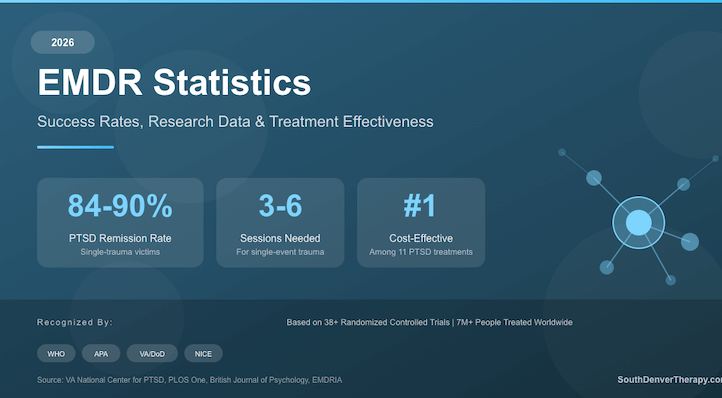
EMDR Statistics 2026: Success Rates, Research & Effectiveness Data
Does EMDR actually work? The research says yes. Studies show 84-90% of single-trauma victims no longer have PTSD after just 3 sessions, and EMDR ranks #1 as the most cost-effective treatment. Here's what the latest 2026 research reveals about EMDR success rates, treatment timelines, and effectiveness across different conditions.
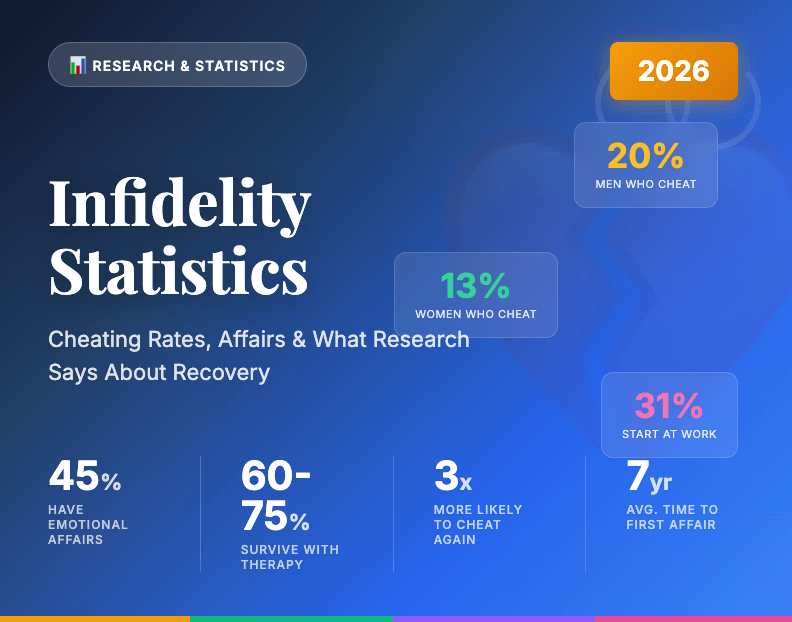
Infidelity Statistics 2026: Cheating Rates, Affairs & Research Data
How common is cheating really? Current research shows 20% of married men and 13% of women admit to infidelity—but those numbers climb to 45% when emotional affairs are included. Here's what the data reveals about affairs, why they happen, and how marriages recover.
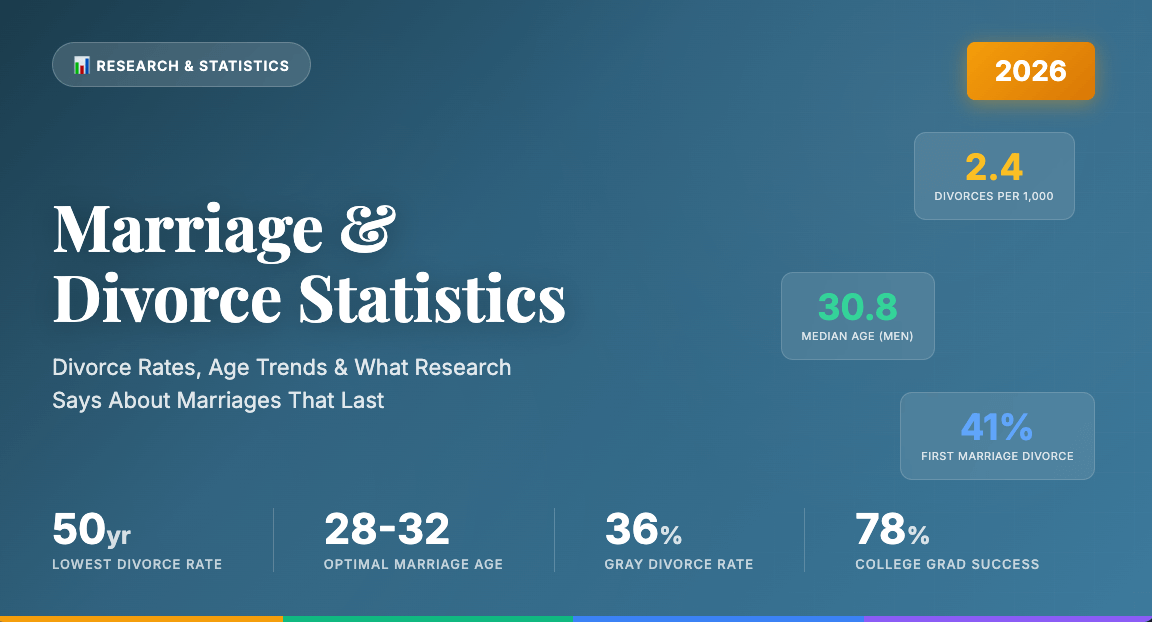
Marriage Statistics 2026: Divorce Rates, Age Trends & Key Facts
The U.S. divorce rate has dropped to its lowest point in over 50 years while Americans are marrying later than ever. Here's what the 2026 marriage and divorce statistics actually show—and what it means for your relationship.

10 Proven Strategies for Making Long-Distance Relationships Thrive in 2026
Long-distance relationships require different skills than geographically close ones—but "different" doesn't mean "impossible." These ten research-backed strategies help couples not just survive the distance but use it to build deeper connection.
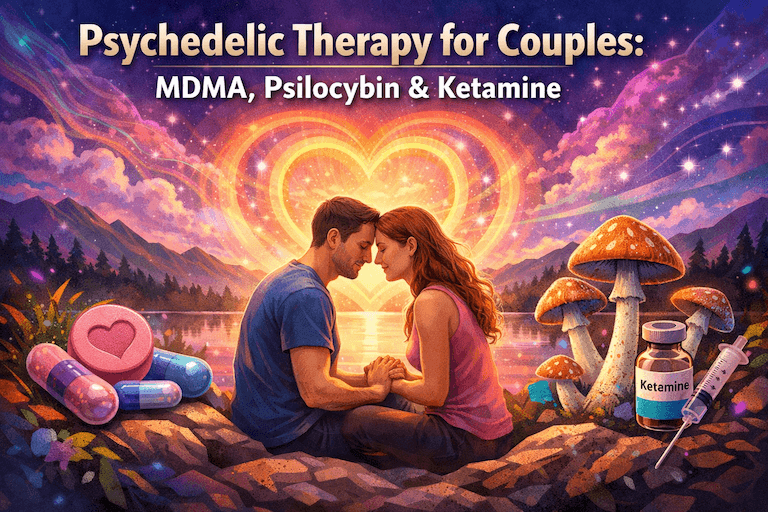
Psychedelic Therapy for Couples: MDMA, Psilocybin & Ketamine
Can MDMA, psilocybin, or ketamine help couples reconnect? Heres what 2026 research says about psychedelic-assisted therapy for relationships - and the risks.
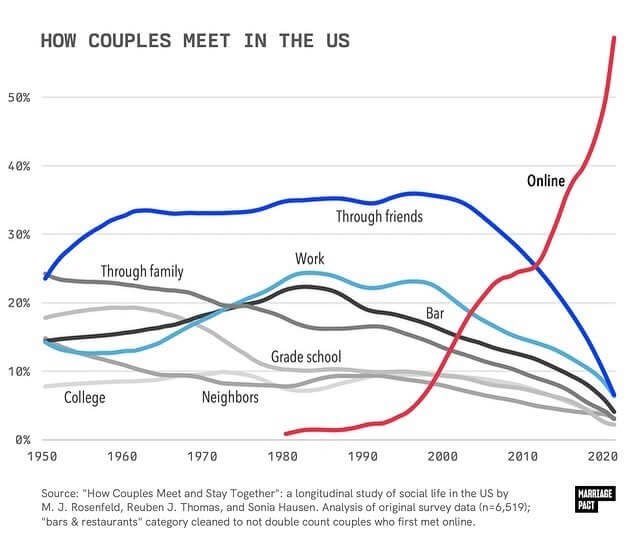
How Couples Meet: Where Most Couples Find Love in 2026
Finding love in 2026 looks very different from a decade ago. With online dating dominating the scene, workplace romances, mutual friends, and chance encounters still play a role in bringing couples together. But where do most couples meet their spouse today? In this article, we explore the latest relationship statistics, the top ways people find love, and the emerging dating trends shaping modern relationships. Whether you're swiping right, meeting through mutual friends, or sparking a connection at a coffee shop, discover how couples are forming lasting bonds in today's digital world.
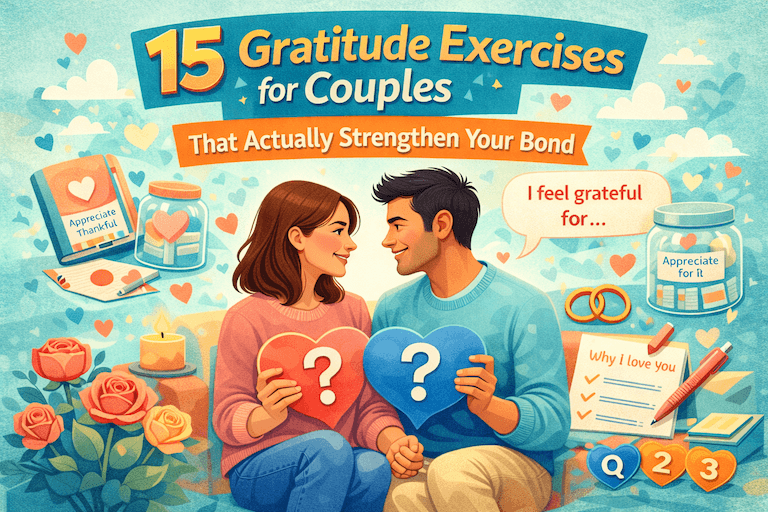
15 Gratitude Exercises for Couples That Actually Strengthen Your Bond (Research-Backed)
Gratitude is the #1 predictor of marital quality according to research. These 15 exercises—from 30-second daily habits to deeper weekly practices—will help you and your partner feel more connected and appreciated.
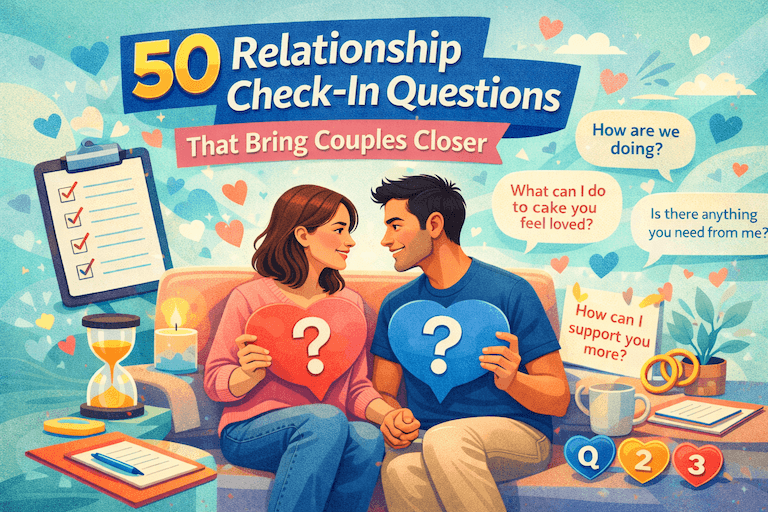
50 Relationship Check-In Questions That Bring Couples Closer (Plus How to Actually Use Them)
Weekly relationship check-ins prevent disconnection. Use these 50 conversation starters for meaningful talks about your relationship.
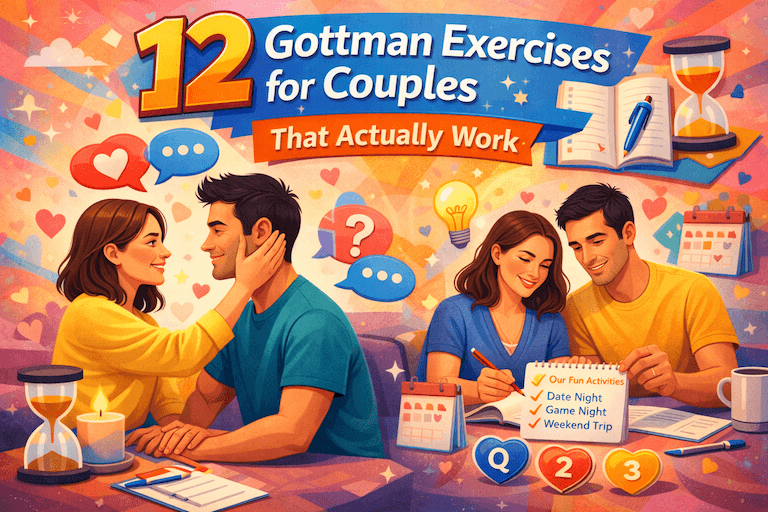
12 Gottman Exercises for Couples That Actually Work (Backed by 40+ Years of Research)
Dr. John Gottman spent 40+ years studying what makes relationships work. These 12 exercises from his research can help you reconnect, communicate better, and strengthen your relationship at home.
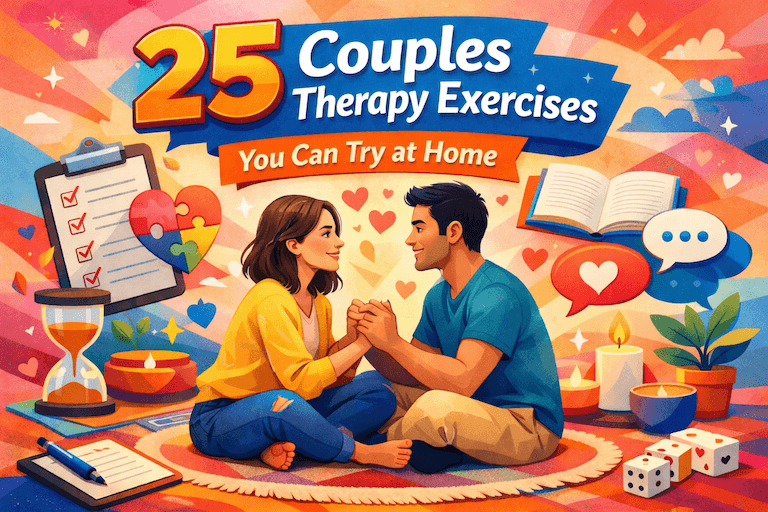
25 Couples Therapy Exercises You Can Try at Home
Can't afford couples therapy? Try these 25 therapist-approved exercises for better communication, trust, and intimacy. Includes free downloadable PDFs.

When to End a Relationship: 12 Signs It's Time to Walk Away
Not sure whether to stay or go? A therapist breaks down the 12 signs that signal it's time to end a relationship—and how to make this painful decision.

50 Premarital Questions Every Couple Should Ask Before Marriage
Essential premarital questions organized by the 8 topics therapists say matter most—with guidance on why each matters and what to do if you disagree.

20 Green Flags in Relationships: Signs of a Healthy Partner
Learn the 20 green flags therapists look for in healthy relationships—with real examples of what secure, emotionally healthy partners actually do.

25 Red Flags in Relationships You Should Never Ignore
A therapist explains 25 relationship red flags—organized by severity and category—so you can spot warning signs before it's too late.
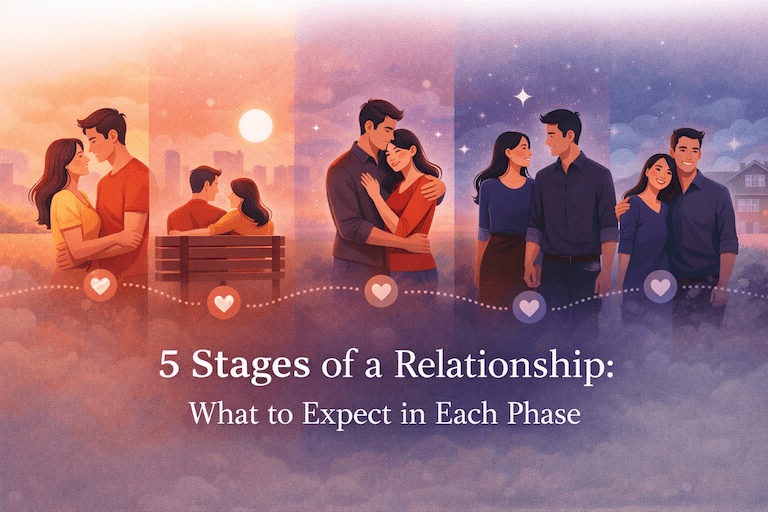
5 Stages of a Relationship: What to Expect in Each Phase
Every relationship goes through 5 predictable stages. Learn what to expect in each phase and how to navigate the challenges.

Psychedelic Therapy in Colorado: What You Need to Know About Psilocybin, Ketamine & Mental Health Treatment (2026 Guide)
Colorado is now one of the first places in the country where you can legally receive psilocybin therapy. Whether you've tried medication without success or you're curious about emerging treatments, this guide covers what psychedelic therapy actually is, who it can help, and what the science says.
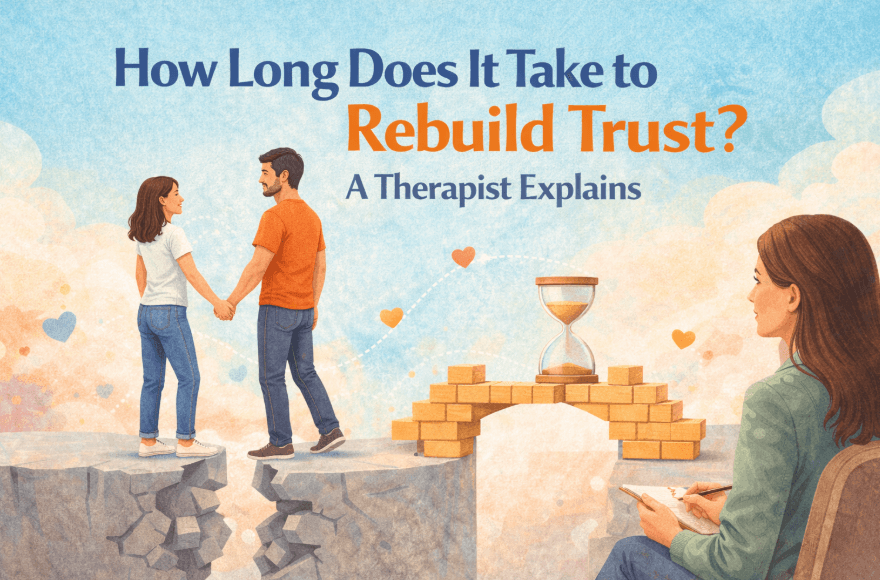
How Long Does It Take to Rebuild Trust? A Therapist Explains
How long does it take to rebuild trust? Learn the realistic timeline, what affects how fast you heal, and signs you're making progress.
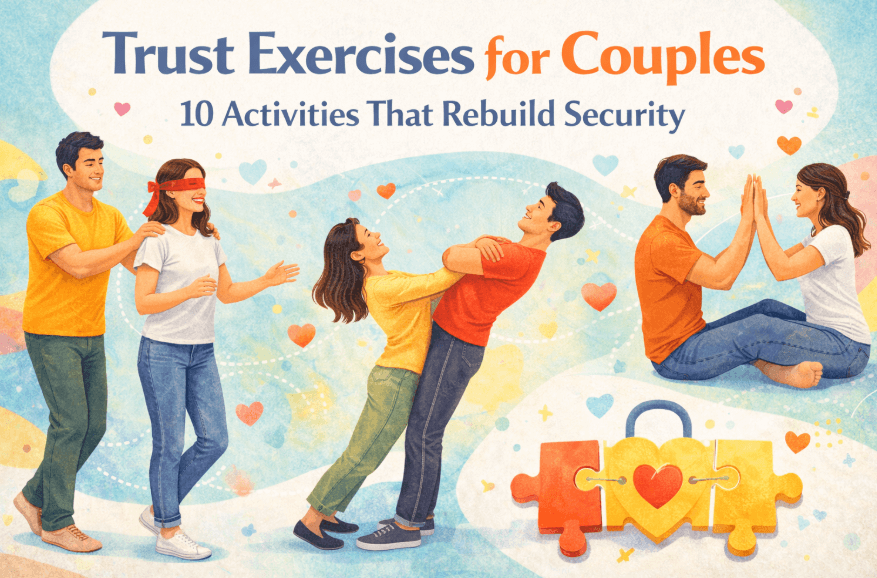
Trust Exercises for Couples: 10 Activities That Rebuild Security
Rebuilding trust takes more than time. Try these 10 therapist-approved exercises that help couples create safety and vulnerability.
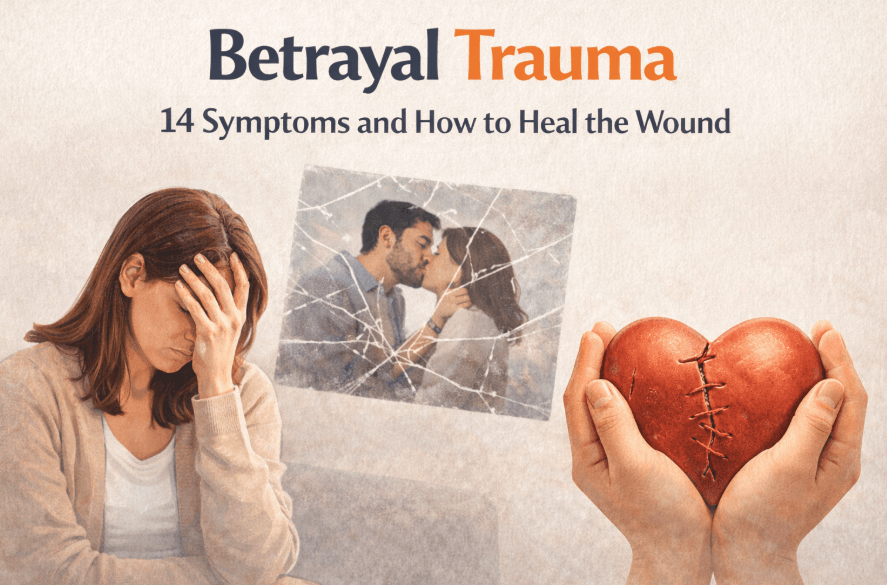
Betrayal Trauma: 14 Symptoms and How to Heal the Wound
Betrayal trauma can feel like PTSD. Learn the 14 symptoms therapists see and evidence-based steps to heal from partner betrayal.
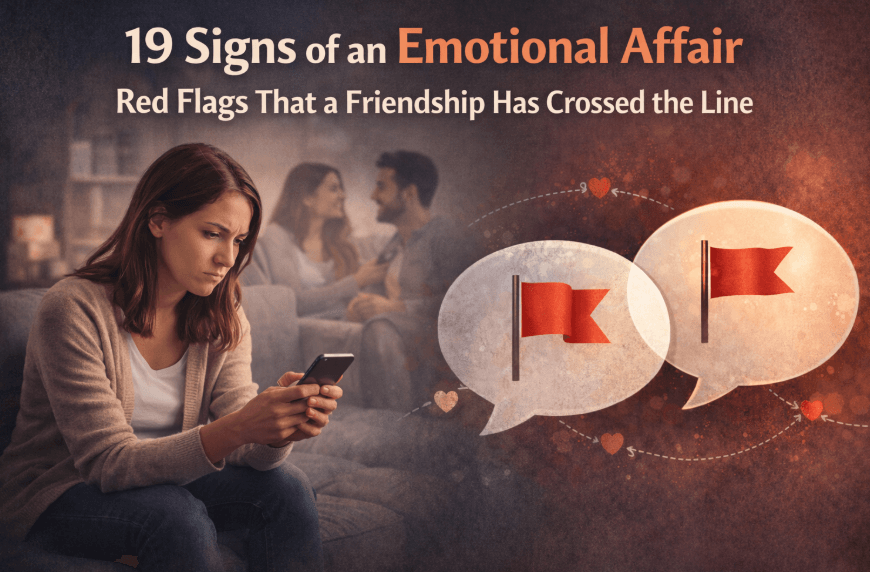
19 Signs of an Emotional Affair: Red Flags That a Friendship Has Crossed the Line
Worried a friendship has become something more? These 19 therapist-identified warning signs reveal when a connection has crossed the line into emotional cheating.